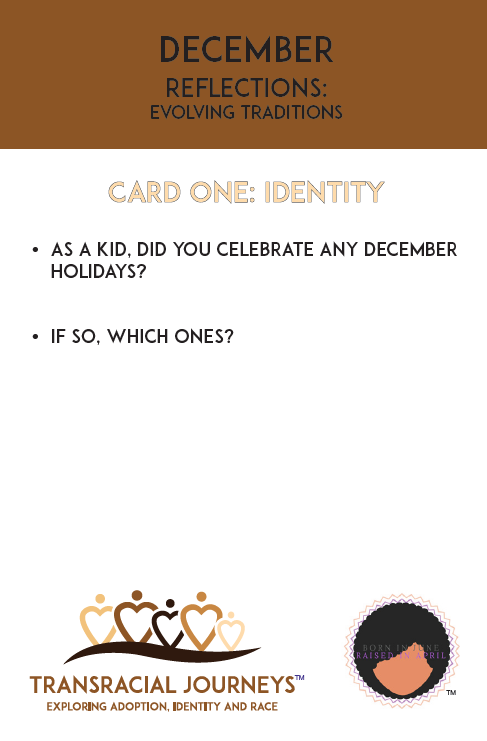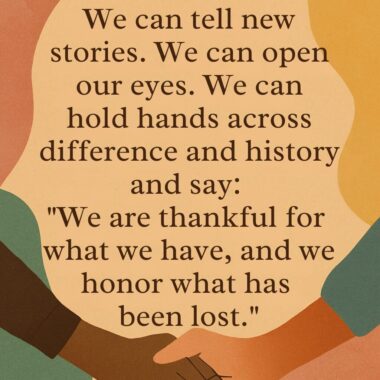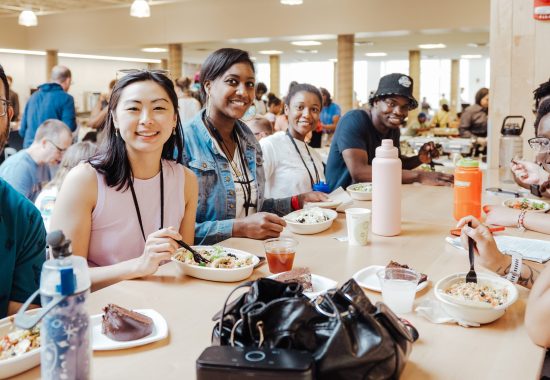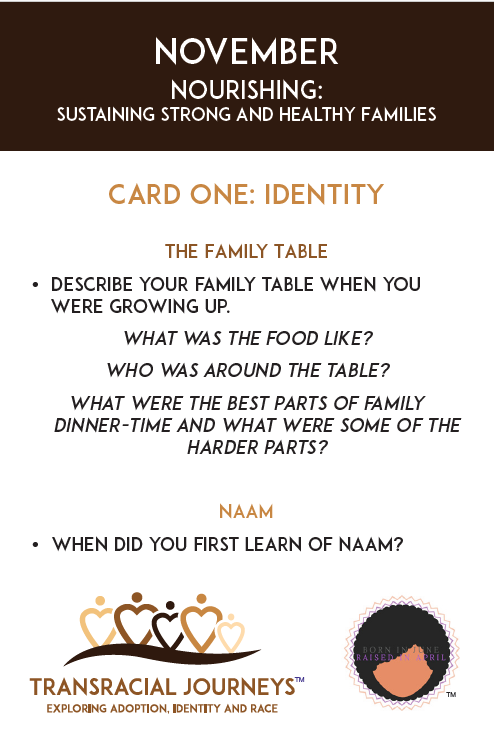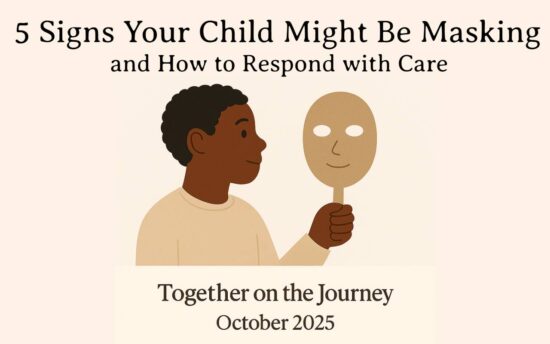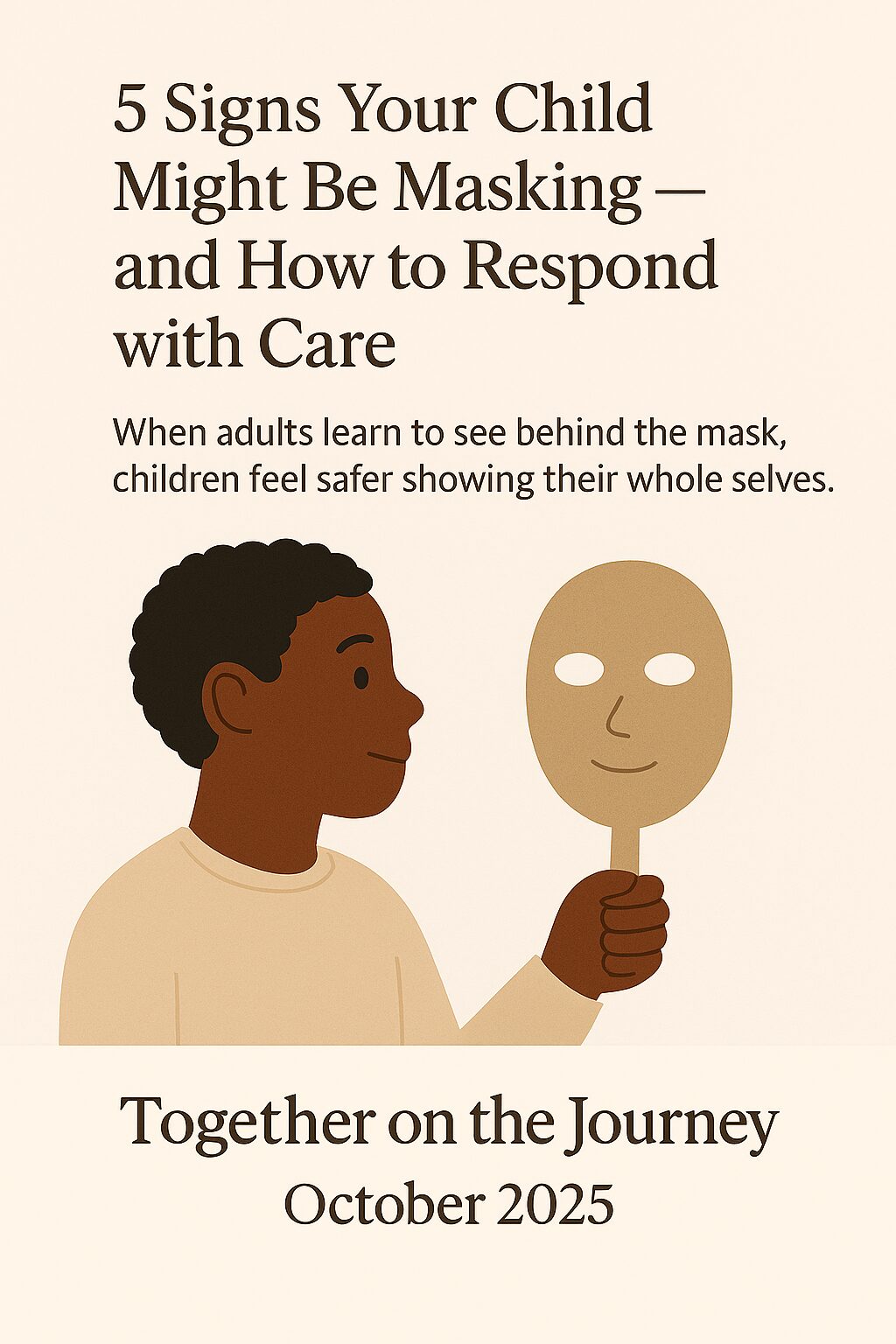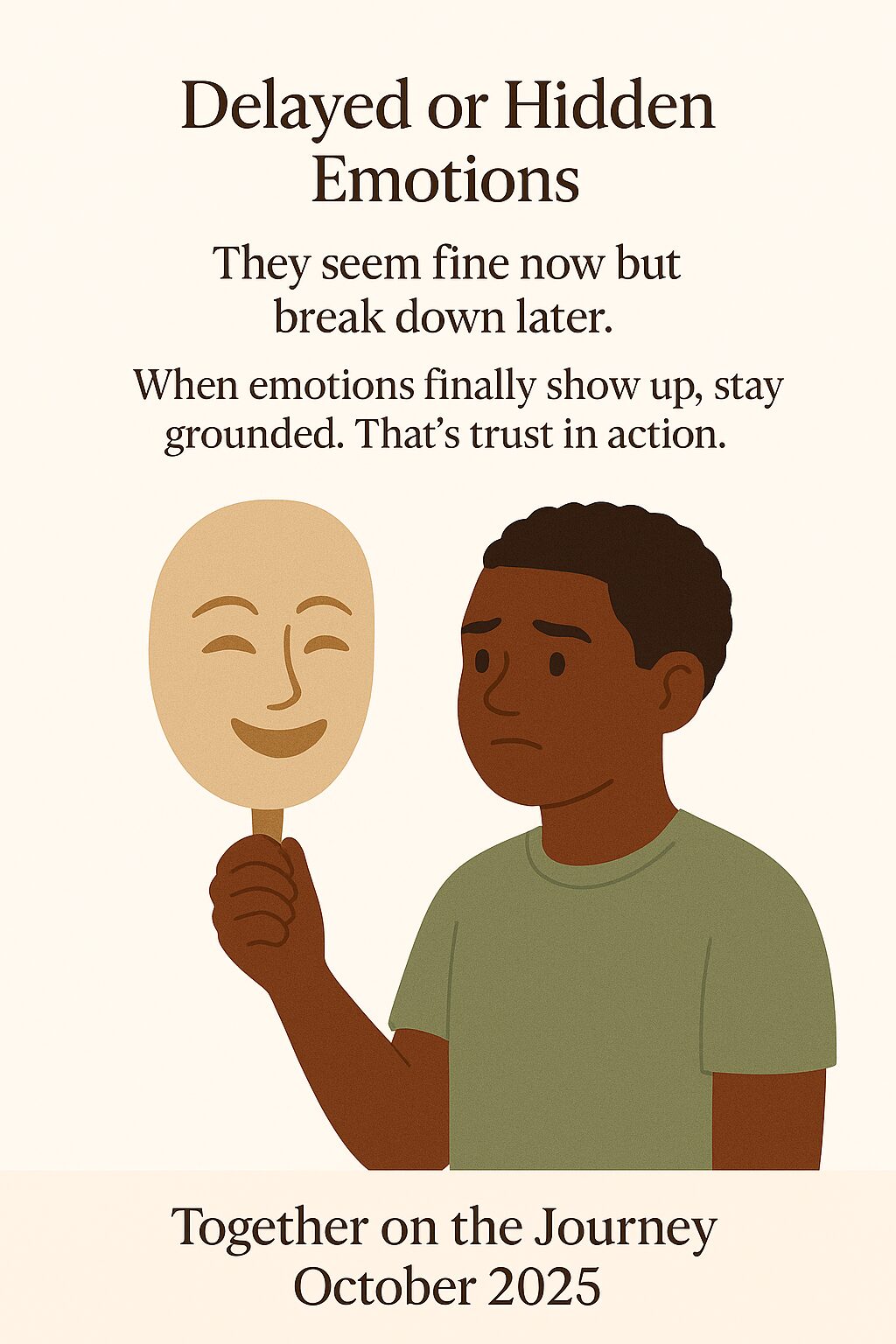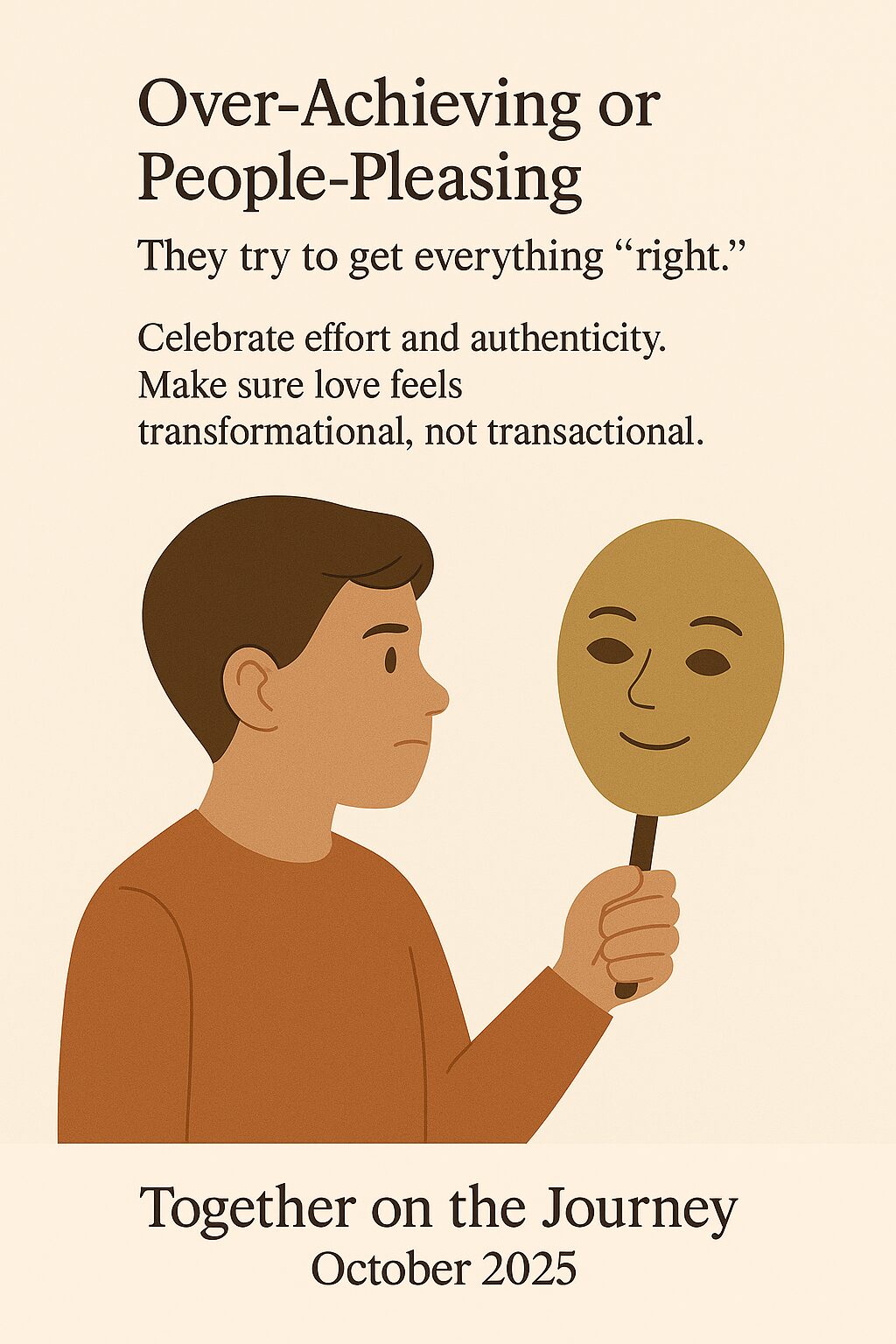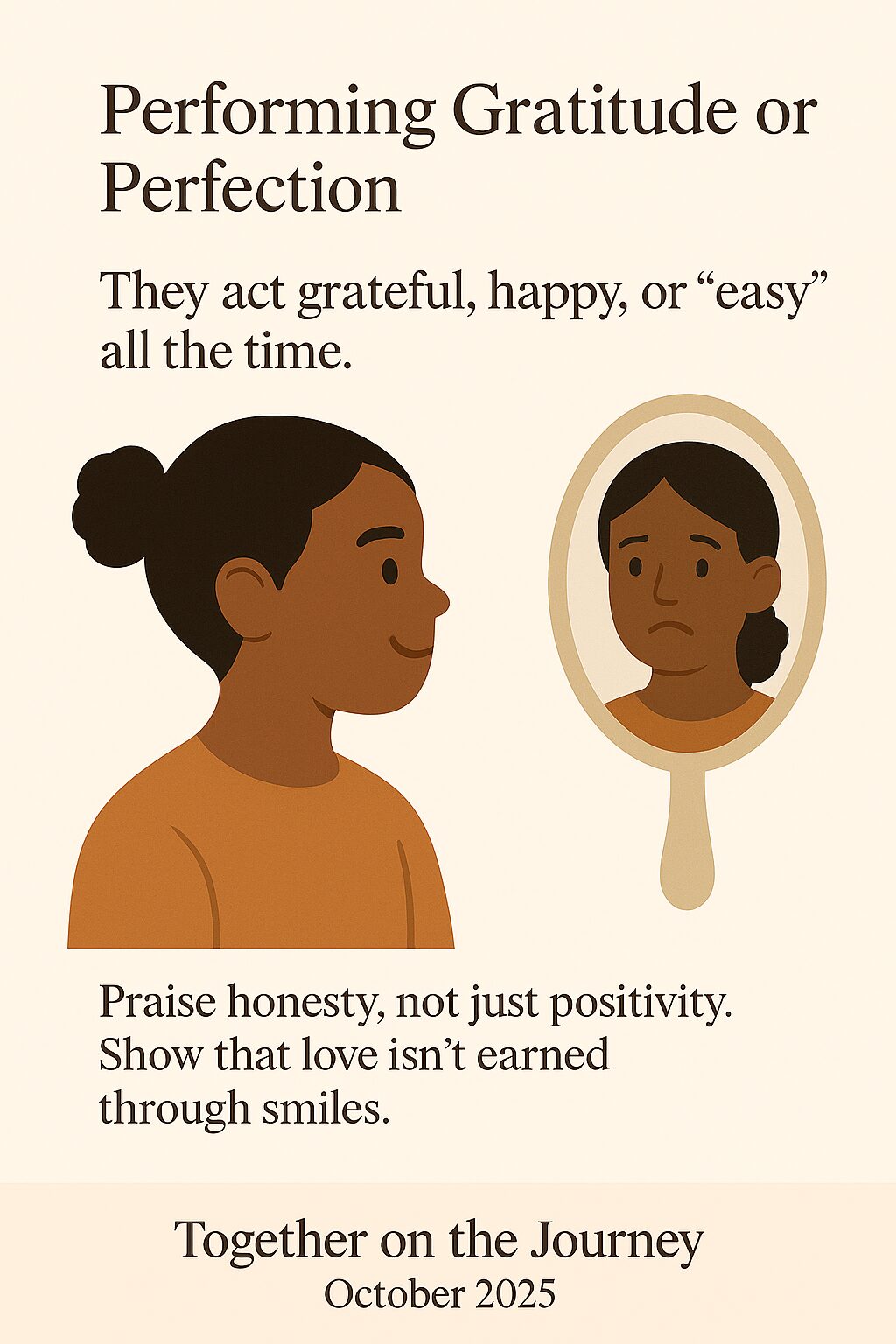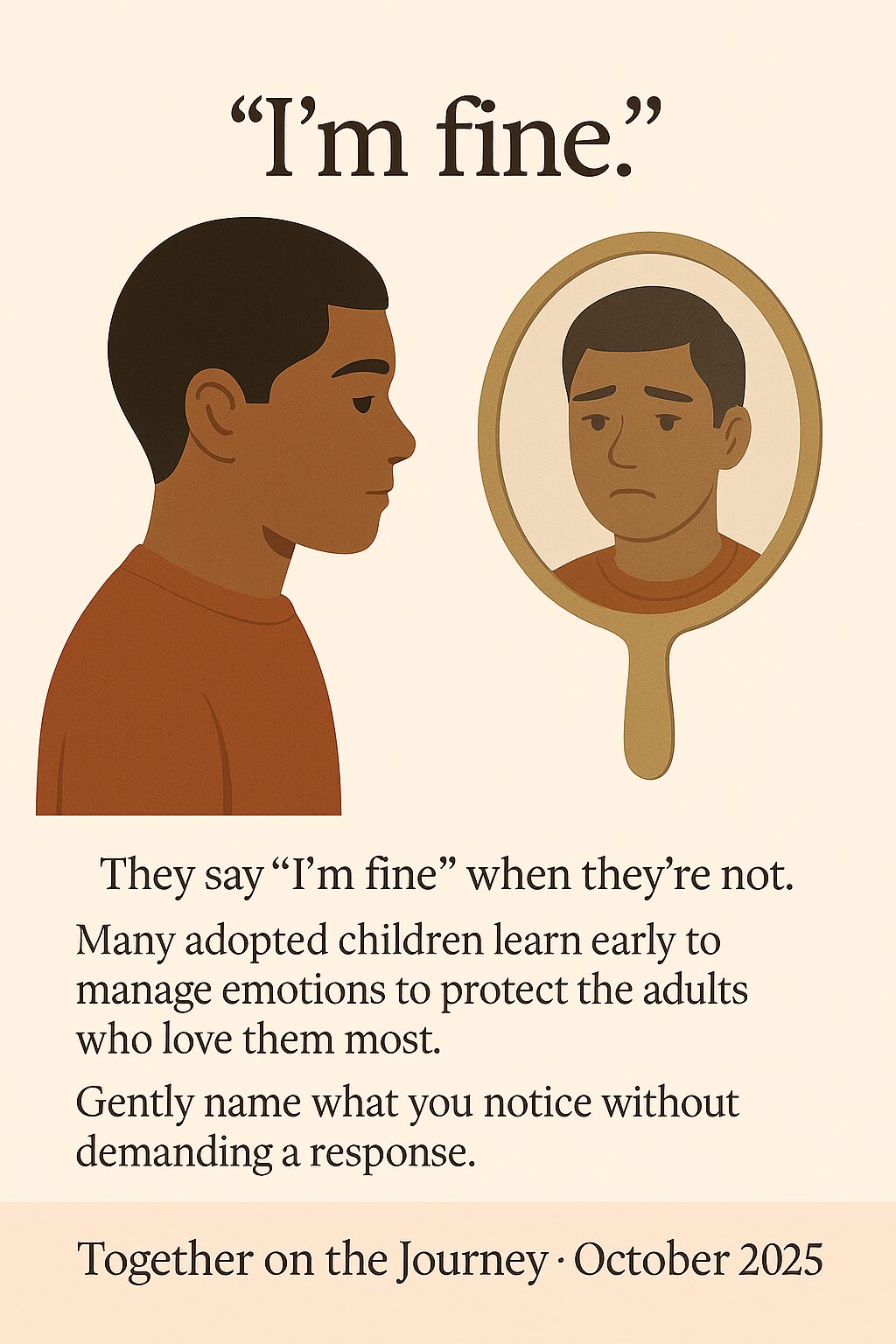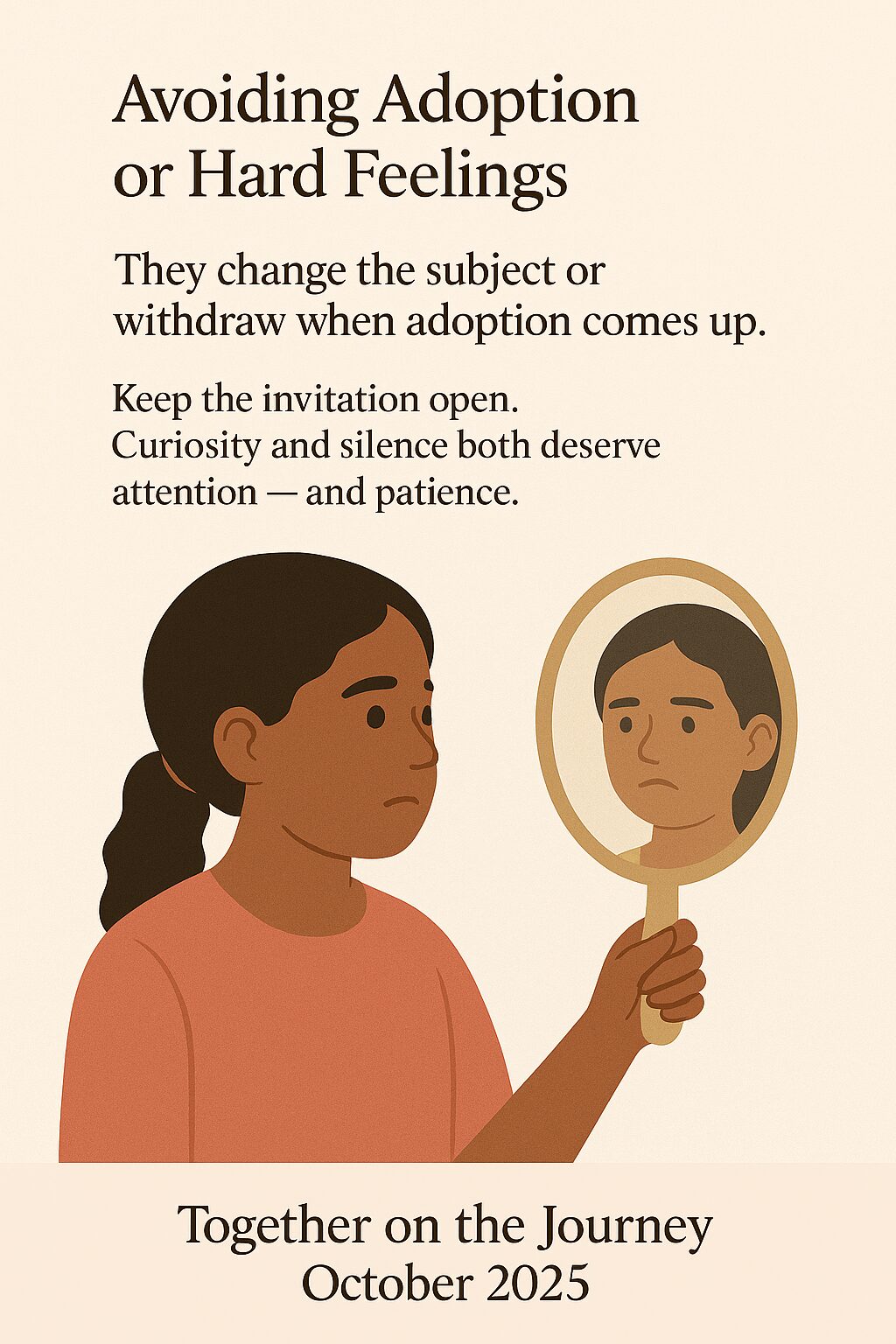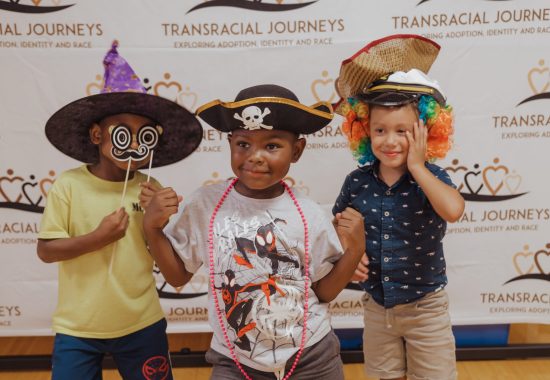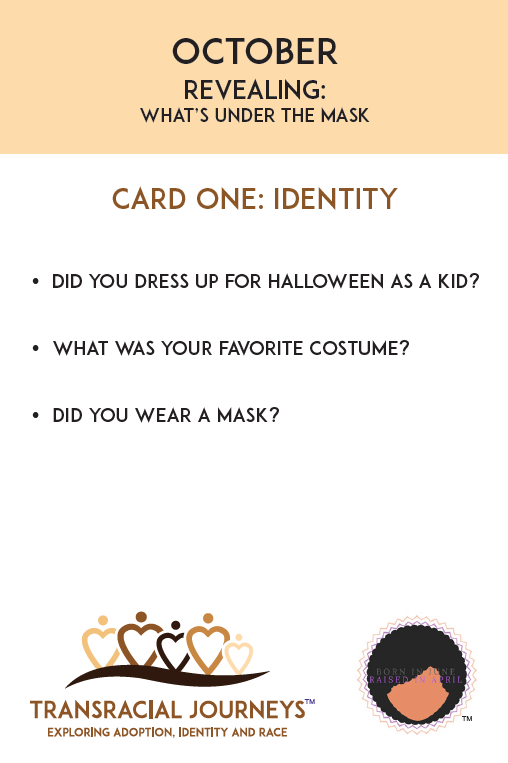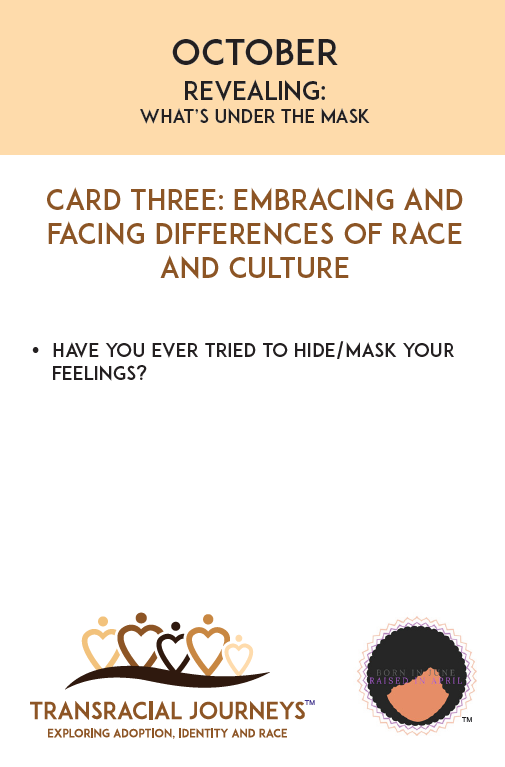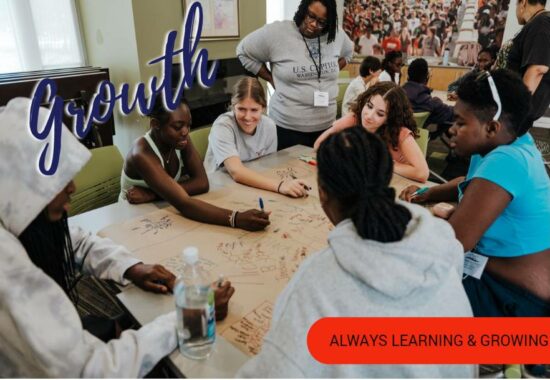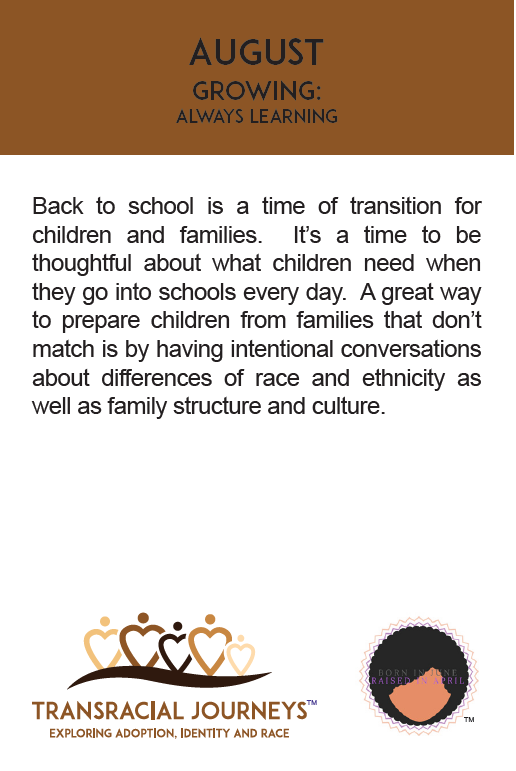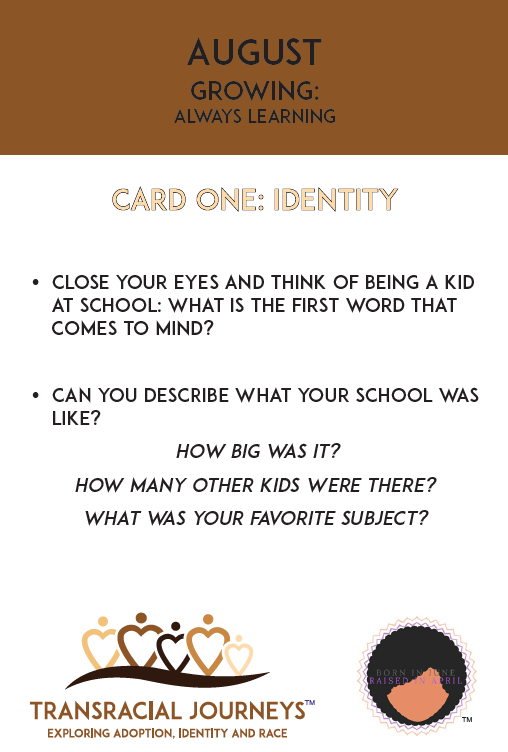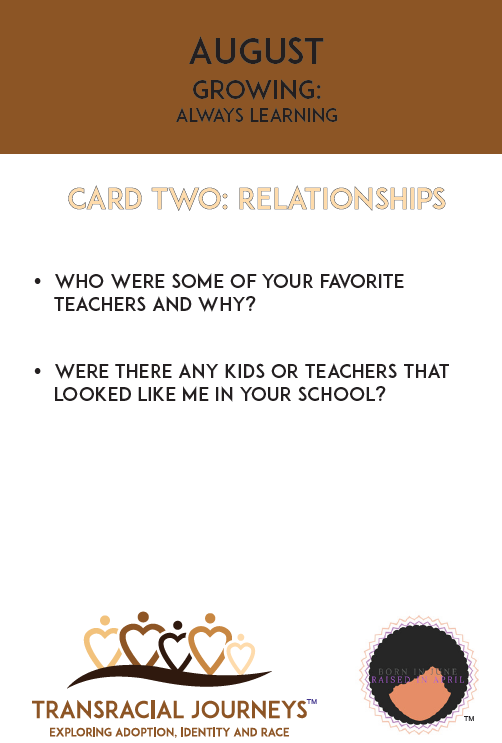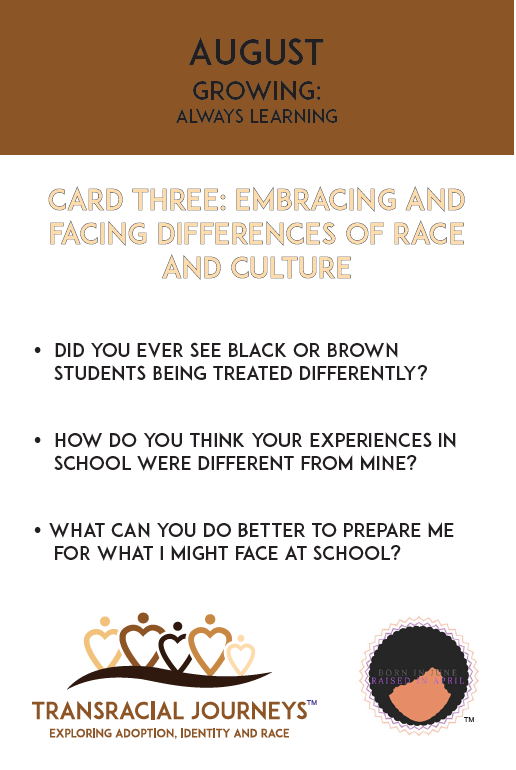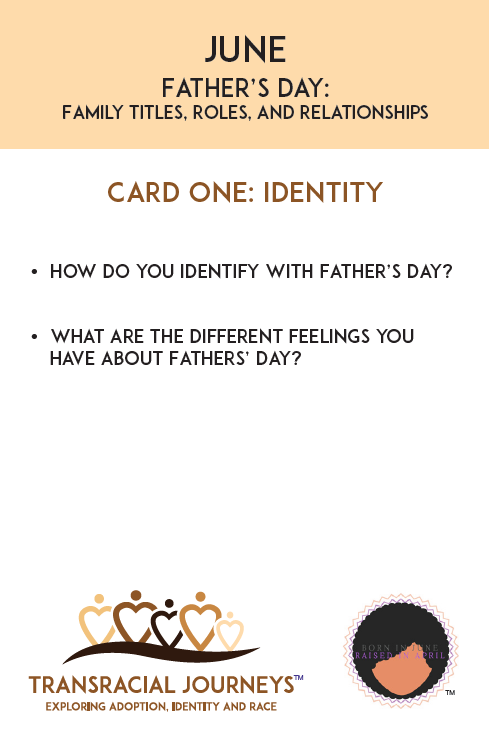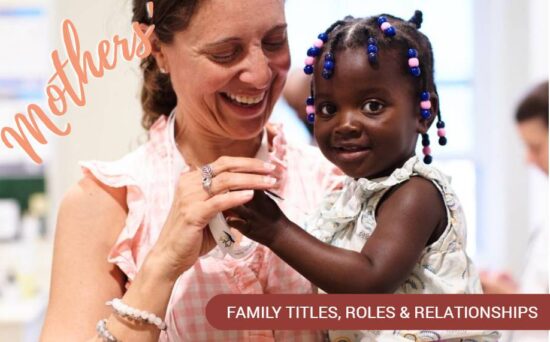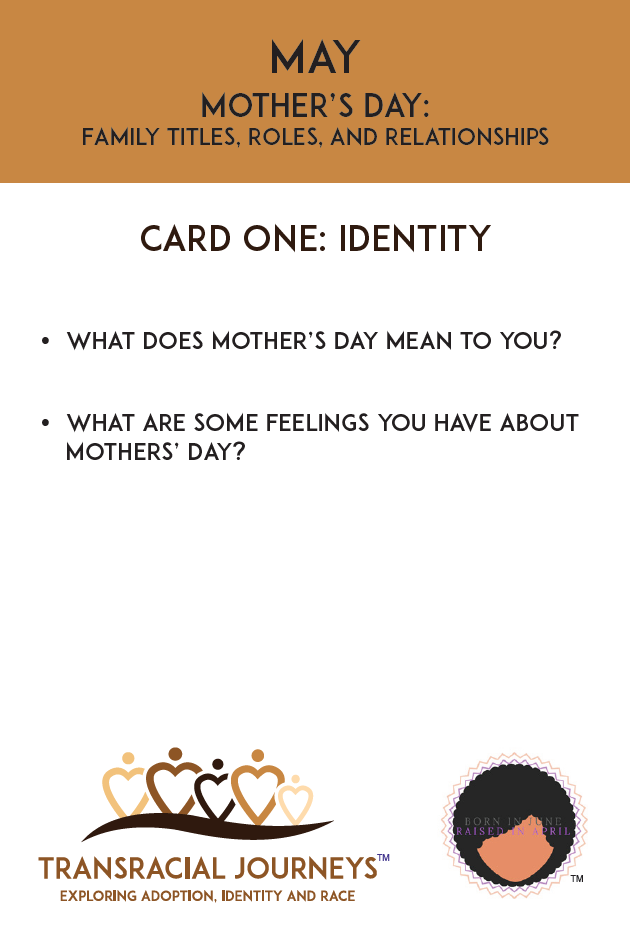By April Dinwoodie
This spring, we're offering a two-part series:
Celebrating the Many Hands and Hearts That Hold Us — an exploration of what it means to honor family expansively through the lens of adoption.
As an adopted person — and someone in deep community with others who share this experience — I know firsthand that Father’s Day can be powerful, complicated, and deeply emotional. (read Part One about Mother's Day)
Some years, it filled me with gratitude. Other years, there was a quiet ache — wondering about the man who gave me life and the life I might have had. Even as I loved the father who raised me, there was still a part of me reaching for something... or someone... just out of reach.
That layered experience is not unique to me. It’s woven into the lives of many adopted persons. And no matter how we may feel, the reminders will come — through store displays, school assignments, social media tributes, and advertising campaigns.
In Part Two of our series, we focus on Father’s Day — the emotions it carries, the opportunities it presents, and how adoptive families can hold space for the many hands and hearts that shape a child’s life.

Fathering in Many Forms
For many of us, the word father is layered — and when adoption is part of the story, those layers deepen.
There may be a father of origin whose presence or absence shaped the beginning of a child’s life. There may be a father who raises and nurtures daily. There may be foster dads, grandfathers, mentors, coaches — and even aunties or mothers — who bring fathering energy in ways large and small.
Parenting a child through adoption means embracing the truth of multiple fathering experiences. It means helping children hold both love and grief, gratitude and longing, knowns and unknowns — often all at once.
Father’s Day can be joyful and confusing. It can be a time of celebration and sorrow. And when adoptive parents acknowledge these truths with openness, they offer one of the most powerful gifts: Permission and pathways to be whole.
The Erasure of Fathers — Especially Black Fathers
The truth is: many fathers of origin were not absent — they were excluded. They were pushed out of the narrative or never brought into it to begin with. Some — like my own — didn’t even know we existed.
There are, of course, cases where exclusion is necessary. When a father poses a risk to the child or others, safety must come first. And in adoption, it is often mothers who are positioned — sometimes solely — to decide whether or not to engage fathers. These are deeply personal, emotional, and often complicated decisions.
But far too often, exclusion becomes the default — not because of safety, but because of stigma, assumptions, or systemic failures. And when that happens, children lose access to an important part of their identity.
This erasure is especially common when it comes to Black fathers, who have long been portrayed through distorted, deficit-based lenses — as disengaged, irresponsible, or disposable. These narratives are not just untrue — they are deeply harmful.
We can do better.
Even when direct contact isn’t possible or appropriate, we can make space for dialogue, curiosity, and connection — symbolically, emotionally, historically. We can speak of fathers of origin with humanity and cultural humility. We can, invite in their presence, even if only through stories, reflection, or ritual.
In doing so, we honor the whole child — and the many hands and hearts that helped bring them into this world.
Suggestions for a More Expansive Fathers’ Day
Here are a few ways to expand and deepen your family’s celebration of fatherhood:
1. Name and Honor All Father Figures
Just like we did for Mothers’ Day, take time to name the people who have offered fathering care: fathers of origin, grandfathers, foster dads, coaches, uncles, mentors — even moms or aunties who carry fathering energy.
Speak them into the space.
Example: “I wonder what your father of origin might have been like. I wonder if he liked being outside like you do.”
This act of wondering and naming makes room for reflection, memory, and humanizing fathers.
2. Challenge the Single-Story Narrative
If you're parenting a child through adoption, challenge the idea that one father replaces another. You don’t need to choose between the past and present. Embrace the both/and:
“I’m so honored I get to raise you, and I wonder what parts of your father of origin live in you.”
Honoring one does not diminish the other.
3. Create a Ritual or Symbolic Gesture
Even if the child entrusted to you has no relationship with or knowledge of their father of origin, you can still make space for connection.
Rituals can help hold what is unknown or unresolved.
Plant something. Light a candle. Add a note to a memory box. Include a name or likeness (if known) in a family collage. These small acts of remembrance say:
“All of who you are matters here.”
4. Talk to Schools and Communities Ahead of Time
Just like with Mother’s Day, reach out to the adults in your child’s life — teachers, coaches, clergy — and offer context.
Explain your family’s approach to Father’s Day. Ask them to be mindful of activities that assume a singular, present, or traditional father figure.
It’s not about avoiding the holiday — it’s about preparing for it with intention and care.
Becoming the Bridge
As adoptive parents and caregivers, you are not meant to erase what came before — you are meant to build a bridge to it.
This Father’s Day, honor the many hands and hearts that hold your child. Include your own. Don’t be afraid of complexity — it’s where truth lives.
Traditional celebrations may not always fit your family’s reality — and that’s okay. With open hearts, honest conversations, and a willingness to hold what’s hard, your family can meet this season with connection and grace.
When we honor fatherhood in its many forms, we give our children something powerful:
the right to know themselves fully — and to be loved in all their layers.
Listen to the Calendar Conversations podcast to hear more about this series. And follow April on social media @JuneinApril and on YouTube @April Dinwoodie
Posts Related to Fatherhood, Motherhood and Transracial Adoption
